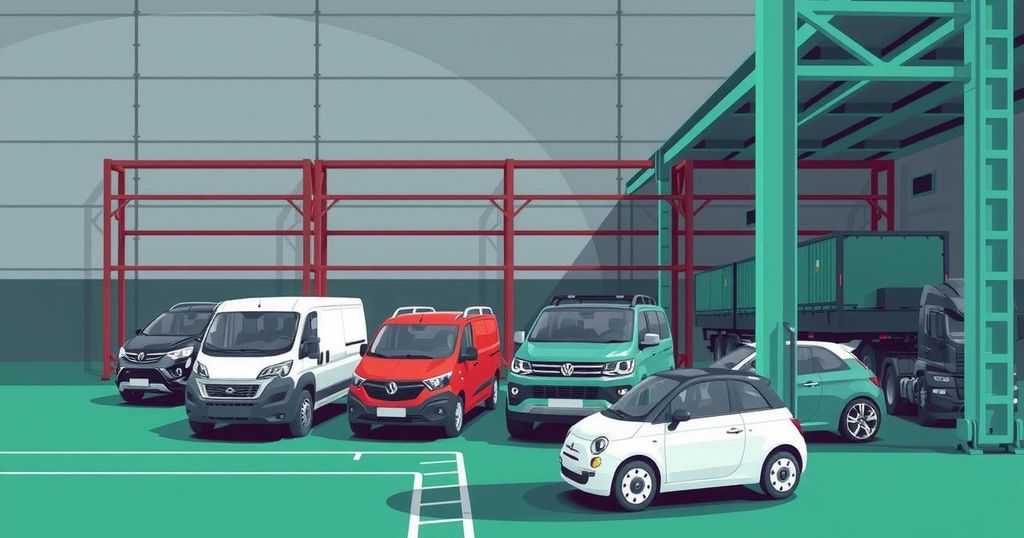Brazil’s Automotive Association Advocates for Increased Tariffs on Chinese Imports
Brazil’s automotive association, Anfavea, is advocating for a restoration of a 35% tariff on Chinese vehicle imports in response to increased competition from electric and hybrid cars. They argue that lower tariffs destabilize the domestic market and threaten jobs. While they oppose the influx of Chinese vehicles, they welcome investments from foreign manufacturers like BYD to enhance local production.
The National Association of Automotive Vehicle Manufacturers (Anfavea) in Brazil is advocating for an increase in tariffs on Chinese vehicle imports. The association attributes this request to a surge in electric and hybrid vehicles from China, which has raised concerns about a potential foreign trade imbalance that could jeopardize production, investments, and jobs in the Brazilian automotive sector. Anfavea is urging the government to revert the tariff reductions made last year, which significantly lowered tariffs on electric and hybrid vehicles.
In its argument, Anfavea emphasizes that Brazilian automotive market tariffs are comparatively low, making the country an attractive target for Chinese manufacturers. The association highlights that while it advocates for a 35 percent tariff, this figure still lags behind other regions such as the European Union, which imposes a 48 percent tariff on Chinese electric vehicles, and North America, where tariffs can reach as high as 100 percent.
The flooding of imports is viewed as a destabilizing factor for Brazil’s automotive industry, which has only recently emerged from a period of economic challenges, including the impacts of the COVID-19 pandemic. Anfavea warns that a detrimental trade balance could threaten the industry, which supports approximately 1.3 million jobs in Brazil. They further contend that such an imbalance could deter investments crucial for the development and production of electric vehicles, particularly given the 180 billion reais (approximately USD 31.27 billion) in anticipated investments.
Interestingly, while Chinese imports present a challenge, Anfavea expresses support for investments from established automotive companies such as BYD and Great Wall Motor. They assert that maintaining low tariffs may hinder these investments, which are essential for job creation in Brazil. For instance, the new BYD factory, currently being constructed, is projected to provide 10,000 jobs upon completion, counteracting job losses arising from previous automotive plant closures in the region.
In summation, Anfavea’s push for higher tariffs on Chinese vehicle imports stems from the need to protect the Brazilian automotive industry amidst a flood of foreign vehicles. The call for restoring tariffs reflects concerns about trade imbalances, potential job losses, and the overall stability of the sector, which is vital for the Brazilian economy. Conversely, the association recognizes the benefits of foreign investments from companies like BYD, which could bolster local production and employment.
Original Source: macaonews.org




Post Comment